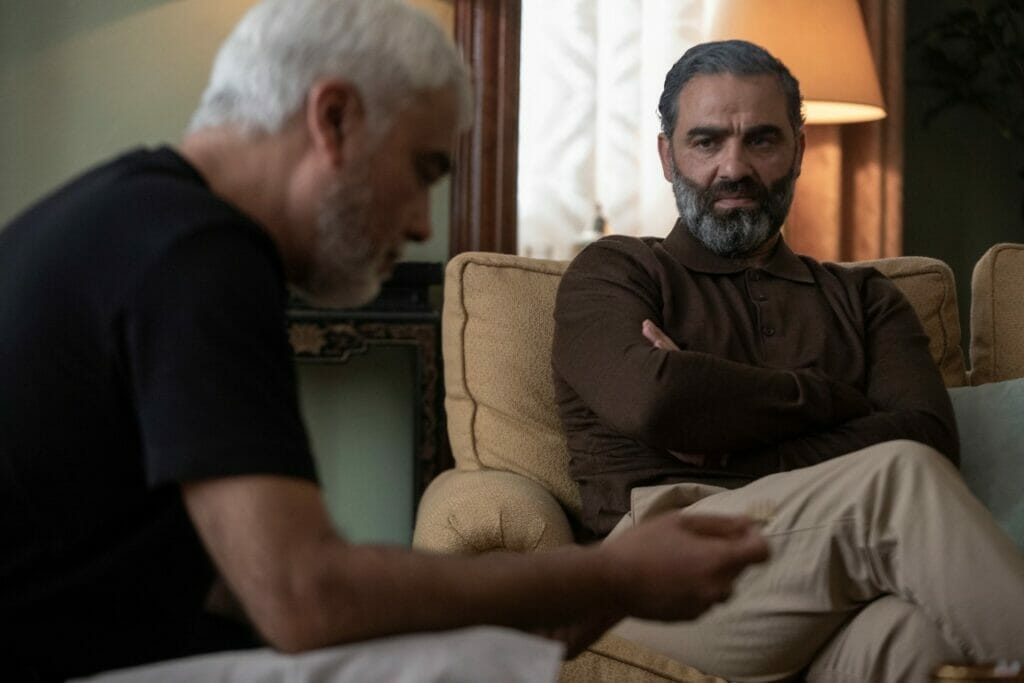Read also:
How to Watch FX Live Without CableHow To Watch AMC Without CableHow to Watch ABC Without CableHow to Watch Paramount Network Without CableShowtime’s account of the hunt for Imad Mughniyeh is a tepid, overstuffed miniseries with a jumbled mix of narrative and documentary elements.
Throughout the near-240 minutes of Showtime’s Ghosts of Beirut, the four-part espionage thriller introduces dozens of characters scattered across the Middle East. CIA agents, Mossad operatives, and various members of the Islamic Jihad Organization all get time within these four hours of television. Creators Avi Issacharoff and Lior Raz attempt to give all perspectives in this story, including that of terrorist Imad Mughniyeh, the central figure of this story, and so, the series consistently remains too limited.
There isn’t enough time for these people to coexist on the screen. Adding to this cluttered cast is a slew of real-life interviews, CIA talking heads, and people who remember Mughniyeh and his reign of terror. The documentary aspects of Ghosts of Beirut never mesh with the narrative story, breaking up any sort of momentum the series can gather. None of them provide necessary insight, instead going through every imaginable way of saying, “I remember this event.” It’s baffling that the series’ creators believed this inclusion enhanced their miniseries when it only creates more confusion amongst the many sea of operatives already on the screen.
The creators break up the four-part series into two distinct eras: Mughniyeh’s rise to power and increasing violence in the 1980s and 1990s and then the lead-up to his assassination by the CIA and Mossad in 2008. It further disconnects an already splintered series, even if it gives Dermot Mulroney time to pop in as a wheeling-and-dealing starry-eyed operative. Characters in neither time period are allowed space to breathe, space to feel earned emotions, space to explore backstories, families, friends, and the moments that led them to this manhunt.

Yet, the series drags through its hour-long episodes, spending swaths of time on side stories, including dedicated time to Mughniyeh meeting and falling in love with a new woman before his death. The audience watches this man walk through the streets of Damascus and flirt with someone new, as this relationship blossoms into a marriage. It’s an odd choice, one likely made to humanize a man that audiences and creators alike know has played a role in killing hundreds and hundreds of innocent people. It only takes time away from other, more likable, emotive characters, those that are dealing with the weight of their decisions with more sincerity.
One of the series’ stronger characters, Teddy (a fantastic Iddo Goldberg), talks briefly about the impact of killing another human being, even if that person is a terrorist. He speaks about the burden of it, the faces he sees when he closes his eyes. And then, all of a sudden, this is treated as a passing thought, not returned to because of a lack of time. It’s one of the few insightful moments of this story, outside of the pure intelligence details. A moment of human apprehension gets swept under the rug, along with the particulars of Teddy and his co-workers’ lives. They’re all in service of a singular mission of eliminating this terrorist, which, once it inevitably happens, carries a similar weight to reading a corresponding news article.
The actors offer solid performances throughout, but these characters are paper thin. At one point, an operative says something to the effect of, “We all came here for different reasons,” yet those reasons are rarely laid out. Each of these people is generalized in all storylines, to further the mission. Ghosts of Beirut usually looks polished and well-made, but the writing fails its characters and its propulsion. The series has a severe absence of emotion, and with a story that doesn’t have many twists and turns, audiences are likely to opt for reading an article rather than finishing these four hours.
Ghosts of Beirut premieres on Showtime on May 19th.